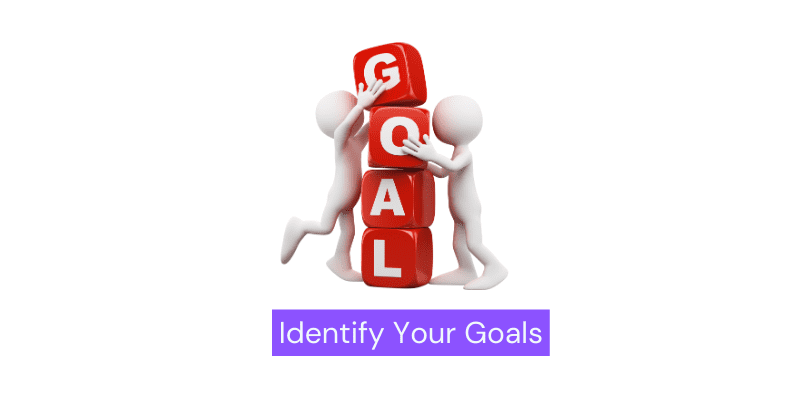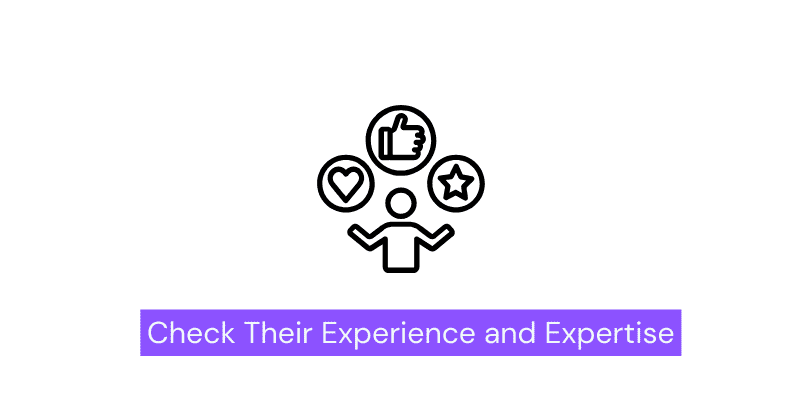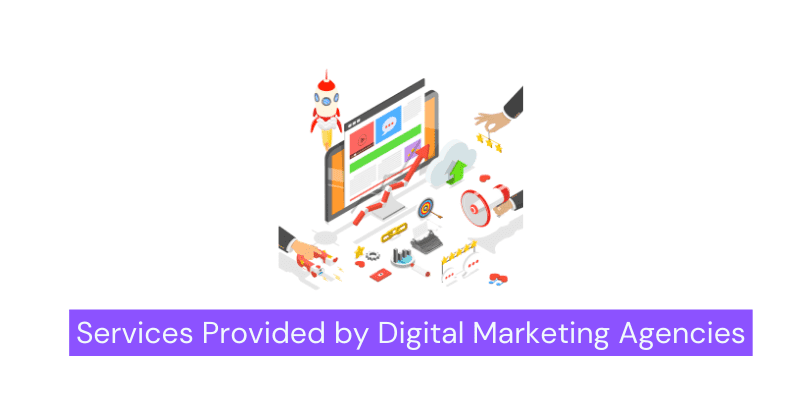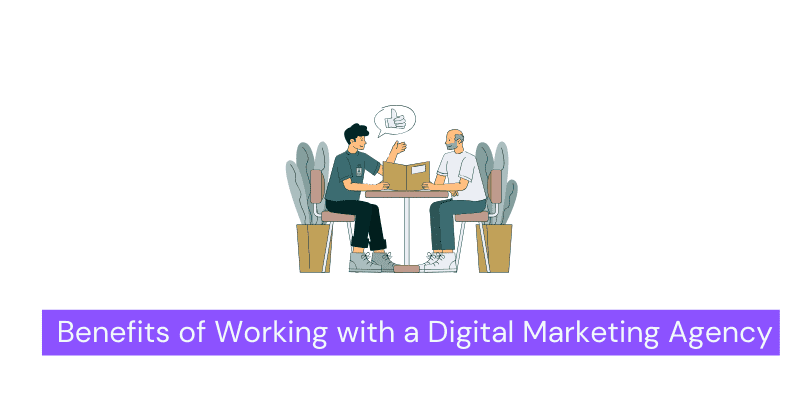Hey there! Are you looking to elevate your business with the help of digital marketing?
Fantastic choice!
But with the myriad of digital marketing agencies in Delhi, how do you pick the right one?
Don’t worry—I’m here to help! In this guide, we’ll explore how to choose the best digital marketing agency in Delhi that aligns with your business goals and drives success. Let’s dive in!
- Identify Your Goals

Understanding Your Business Objectives
Before you start your search, it’s crucial to have a clear understanding of what you want to achieve with digital marketing. Are you aiming to boost your website’s visibility, generate more leads, or boost online sales? Here’s a deeper look at different objectives:
- Increase Website Traffic: If your goal is to attract more visitors to your website, you might need a focus on SEO, content marketing, and PPC campaigns.
- Improve SEO Rankings: To climb the search engine results pages (SERPs), a strong SEO strategy is essential, including on-page, off-page, and technical SEO.
- Enhance Social Media Presence: If you want to build a stronger presence on social media platforms, you’ll need effective social media management and advertising strategies.
Setting SMART Goals
Make sure your goals are Specific, Measurable, Achievable, Relevant, and Time-bound (SMART). This approach helps in tracking progress and evaluating the success of your digital marketing efforts.
- Check Their Experience and Expertise

Evaluating Industry Experience
Experience is a crucial factor in selecting a digital marketing agency. Look for agencies with a proven track record in your industry. For example:
- E-commerce: Agencies with experience in e-commerce will understand the nuances of online sales and customer behavior.
- Healthcare: If you’re in the healthcare industry, choose an agency familiar with healthcare regulations and patient engagement strategies.
Case Studies and Success Stories
Ask for case studies and success stories. These will give you insights into how the agency has helped other clients achieve their goals. An agency’s ability to deliver results in similar industries can be a strong indicator of their potential success with your business.
- Read Client Reviews and Testimonials
Gathering Insights from Reviews
Client reviews are valuable for understanding an agency’s reputation. Look for reviews on various platforms:
- Google My Business: Provides an overall rating and reviews from various clients.
- Clutch: Offers detailed reviews and ratings of digital marketing agencies.
- Social Media: Check the agency’s social media profiles for feedback and interactions.
Understanding Common Feedback
Look for patterns in the reviews. Positive feedback about results, communication, and professionalism is a good sign. Be cautious if you see recurring negative comments about poor performance or lack of transparency.
- Assess Their Range of Services
Comprehensive Service Offerings
A full-service digital marketing agency should offer a range of digital marketing services to cover all aspects of digital marketing:
- SEO: Includes on-page, off-page, and technical SEO.
- PPC: Covers Google Ads, Bing Ads, and other paid advertising platforms.
- Social Media Marketing: Involves strategy development, content creation, and paid campaigns.
- Content Marketing: Encompasses blog writing, infographic creation, and video content.
- Email Marketing: Includes campaign management, list segmentation, and performance tracking.
Benefits of a Full-Service Digital Marketing Agency
Choosing an agency that offers a comprehensive range of services ensures a unified strategy across all channels. This can lead to more effective campaigns and better results.
- Ask About Their Strategies and Tools
Understanding Their Approach
Ask the agency about their strategies and tools. Here’s what to look for:
- SEO Tools: Tools like Ahrefs, SEMrush, and Moz for keyword research and competitive analysis.
- PPC Tools: Platforms like Google Ads and Bing Ads for campaign management.
- Social Media Tools: Tools like Hootsuite, Buffer, and Sprout Social for scheduling and analytics.
- Analytics Tools: Google Analytics and other analytics platforms for tracking performance and making data-driven decisions.
How They Customize Strategies
A good agency will tailor their strategies to fit your specific needs and goals. They should be able to explain how they plan to achieve your objectives and adjust their approach based on performance data.
- Consider Their Communication and Reporting
Effective Communication Practices
Good communication is key to a successful partnership. Look for agencies that:
- Provide Regular Updates: Ensure they offer frequent updates on campaign performance.
- Schedule Meetings: Regular meetings help in discussing progress and addressing any issues.
Transparency in Reporting
Transparency is crucial. The agency should provide clear and detailed reports on:
- Campaign Performance: Metrics like traffic, conversions, and ROI.
- Budget Utilization: How the budget is being spent and the return on investment.
- Evaluate Their Pricing and ROI
Understanding Pricing Models
Different agencies have different pricing models. Here are some common ones:
- Project-Based Pricing: For one-time projects or campaigns.
- Retainer-Based Pricing: For ongoing services with a fixed monthly fee.
- Performance-Based Pricing: Based on the results achieved, such as a percentage of revenue.
Evaluating ROI
Consider the potential return on investment (ROI). A higher cost may be justified if the agency can deliver significant results. Look for:
- Past Performance: Evidence of positive ROI for previous clients.
- Projected ROI: How the agency expects to impact your business metrics.
- Meet the Team
Understanding Team Dynamics
Meet the key members of the team who will work on your project. Key roles to inquire about include:
- Account Manager: The main point of contact for your account.
- SEO Specialist: Focuses on optimizing your website for search engines.
- PPC Expert: Manages your paid advertising campaigns.
- Content Creator: Produces engaging content for your marketing efforts.
Assessing Their Expertise
Evaluate their expertise and experience. The team should have relevant skills and a track record of success in their respective areas.
- Check Their Online Presence
Evaluating Their Website
A strong online presence reflects an agency’s capabilities. Check their:
- Website Design: Should be user-friendly and professional.
- Content: Look for valuable content like blog posts, case studies, and resources.
- SEO: Analyze their search engine rankings and on-page SEO practices.
Social Media Activity
Check their social media profiles for:
- Engagement: Look for active engagement with their audience.
- Content Quality: Assess the quality and relevance of their content.
- Look for Long-Term Partnerships
Building a Long-Term Relationship
Digital marketing is not a one-time effort; it’s an ongoing process. Look for an agency that:
- Shows Interest in Your Growth: They should be invested in your long-term success.
- Offers Continuous Improvement: Look for agencies that regularly optimize and refine their strategies.
Evaluating Their Commitment
A committed agency will:
- Provide Regular Updates and Feedback: Keep you informed about progress and changes.
- Adapt to Your Needs: Adjust strategies based on evolving business goals and market conditions.
Services Provided by Digital Marketing Agencies

Digital marketing agencies offer a range of services designed to help businesses succeed online. Each service plays a crucial role in building a comprehensive digital marketing strategy. Here’s a closer look at these services:
What It Is
SEO is the process of optimizing your website to rank higher in search engine results pages (SERPs). The goal is to increase organic (non-paid) traffic to your site.
Key Components
- On-Page SEO: Involves optimizing individual pages on your website. This includes using relevant keywords in titles, meta descriptions, headers, and content. It also covers optimizing images and ensuring a mobile-friendly design.
- Off-Page SEO: Focuses on improving your site’s authority through external factors. This includes building high-quality backlinks from other reputable websites and managing your brand’s online presence.
- Technical SEO: Deals with the technical aspects of your website that impact its search engine rankings. This includes improving site speed, ensuring a secure connection (HTTPS), and fixing crawl errors.
Benefits
- Increased Visibility: Higher rankings in search results lead to more visibility for your business.
- Higher Traffic: More visibility means more visitors to your website.
- Better User Experience: SEO efforts improve the overall user experience on your site.
- Pay-Per-Click (PPC) Advertising
What It Is
PPC advertising involves paying for ad placements on search engines and other platforms. You only pay when someone clicks on your ad.
Key Components
- Search Ads: Appear on search engine results pages when users search for specific keywords. These ads are usually displayed above or below organic search results.
- Display Ads: Shown on various websites across the internet. They include banners, images, and video ads.
- Social Media Ads: Run on platforms like Facebook, Instagram, LinkedIn, and Twitter. These ads can target users based on their interests, demographics, and behaviors.
Benefits
- Immediate Results: PPC campaigns can generate traffic quickly.
- Targeted Advertising: Ads can be targeted based on specific demographics, interests, and behaviors.
- Measurable Performance: Detailed analytics help track ad performance and ROI.
- Social Media Marketing
What It Is
Social media marketing involves creating and managing content on social media platforms to engage with your audience and promote your brand.
Key Components
- Content Creation: Developing posts, images, videos, and stories tailored to your audience. Content should be engaging, relevant, and aligned with your brand’s voice.
- Social Media Management: Scheduling and managing posts across different platforms. Tools like Hootsuite and Buffer can help with this.
- Social Media Advertising: Running paid ads to boost visibility and engagement. Ads can be targeted based on user behavior, interests, and demographics.
Benefits
- Brand Awareness: Increase your brand’s visibility and reach.
- Engagement: Connect with your audience through interactive content and conversations.
- Customer Insights: Gather valuable data on customer preferences and behaviors.
- Content Marketing
What It Is
Content marketing focuses on creating and distributing valuable, relevant content to attract and retain customers.
Key Components
- Blog Posts: Informative and engaging articles that address your audience’s needs and interests.
- Infographics: Visual representations of information that make complex data easier to understand.
- Videos: Engaging video content that can be shared on social media, YouTube, and your website.
- E-books and Whitepapers: In-depth resources that provide valuable insights and can generate leads.
Benefits
- Establishes Authority: Position your business as an industry leader with valuable content.
- Engages Audience: Provides useful information that attracts and retains customers.
- Improves SEO: Quality content helps improve search engine rankings.
- Email Marketing
What It Is
Email marketing involves sending targeted emails to your audience to nurture leads and build relationships.
Key Components
- Email Campaigns: Planned sequences of emails sent to different segments of your audience.
- List Segmentation: Dividing your email list into segments based on user behavior, demographics, or preferences to send more relevant messages.
- Automation: Setting up automated emails for tasks like welcome messages, abandoned cart reminders, and follow-ups.
Benefits
- Direct Communication: Reach your audience directly in their inbox.
- Personalization: Tailor messages to individual preferences and behaviors.
- High ROI: Email marketing often delivers a high return on investment.
- Web Design and Development
What It Is
Web design and development involve creating and optimizing your website to ensure it’s functional, user-friendly, and aligned with your brand.
Key Components
- Website Design: Focuses on the visual aspects of your site, including layout, color scheme, and typography.
- Website Development: Involves coding and building the website’s functionality. This includes setting up content management systems (CMS) and ensuring responsiveness.
- User Experience (UX) Design: Ensures the website is easy to navigate and provides a positive user experience.
Benefits
- Improved User Experience: A well-designed website enhances usability and satisfaction.
- Increased Conversions: Effective design and functionality can lead to higher conversion rates.
- Brand Consistency: A professionally designed site reflects your brand’s image and values.
- Analytics and Reporting
What It Is
Analytics and reporting involve tracking and analyzing data to measure the performance of your digital marketing efforts.
Key Components
- Performance Tracking: Monitoring key metrics like website traffic, engagement, conversions, and ROI.
- Data Analysis: Interpreting data to understand what’s working and what needs improvement.
- Reporting: Creating detailed reports to share insights with stakeholders and make data-driven decisions.
Benefits
- Informed Decisions: Use data to make strategic decisions and optimize campaigns.
- Performance Insights: Understand the effectiveness of your marketing efforts.
- Continuous Improvement: Identify areas for improvement and adjust strategies accordingly.
Benefits of Working with a Digital Marketing Agency

Working with a digital marketing agency offers several advantages:
- Expertise and Experience: Agencies bring specialized knowledge and experience to the table, helping you navigate the complexities of digital marketing.
- Access to Advanced Tools: Agencies use sophisticated tools and technologies to manage campaigns, track performance, and analyze data.
- Cost-Effectiveness: Hiring an agency can be more cost-effective than maintaining an in-house team, especially for small to medium-sized businesses.
- Time Savings: Agencies handle the day-to-day management of your digital marketing efforts, allowing you to focus on running your business.
- Scalability: Agencies can scale their services up or down based on your needs, providing flexibility as your business grows.
- Fresh Perspectives: Agencies offer new ideas and strategies that can bring innovative approaches to your marketing efforts.
Common Mistakes to Avoid When Choosing a Digital Marketing Agency
Pitfalls to Watch For
Discuss common mistakes businesses make when selecting a digital marketing agency and how to avoid them:
- Not Defining Clear Goals: Emphasize the importance of having well-defined objectives.
- Choosing Based on Price Alone: Warn against focusing solely on cost and ignoring quality.
- Neglecting to Review Past Performance: Stress the importance of evaluating